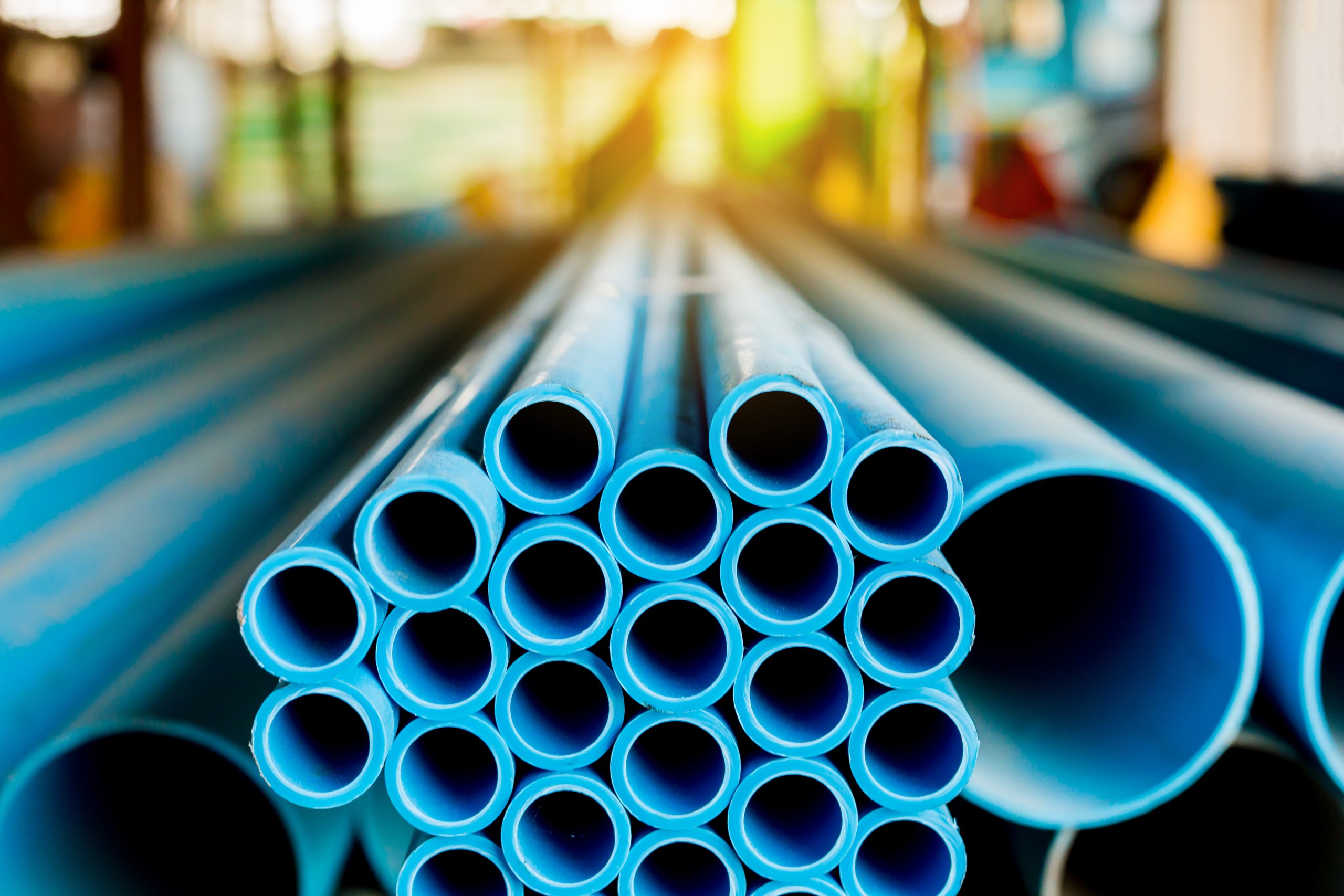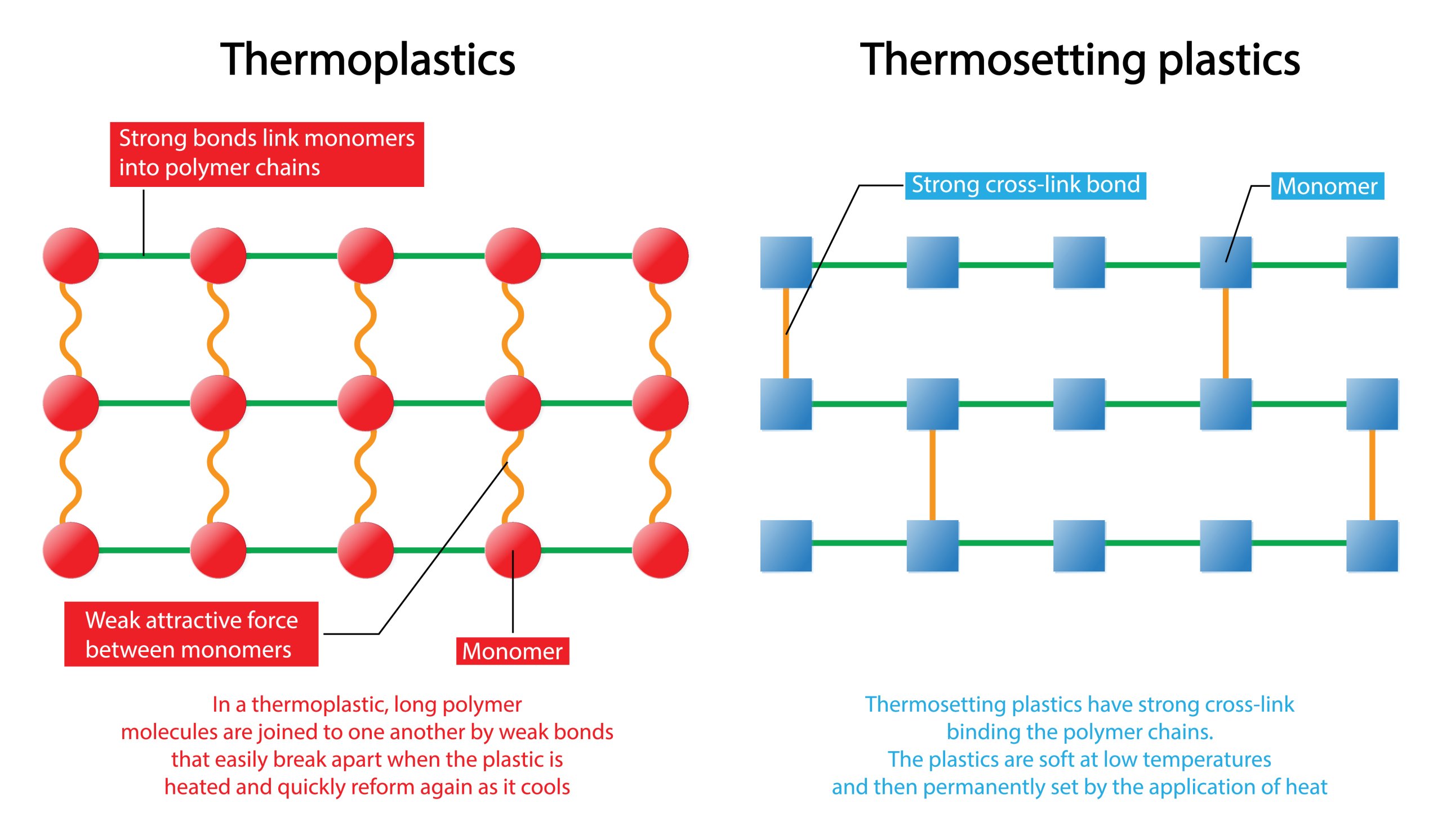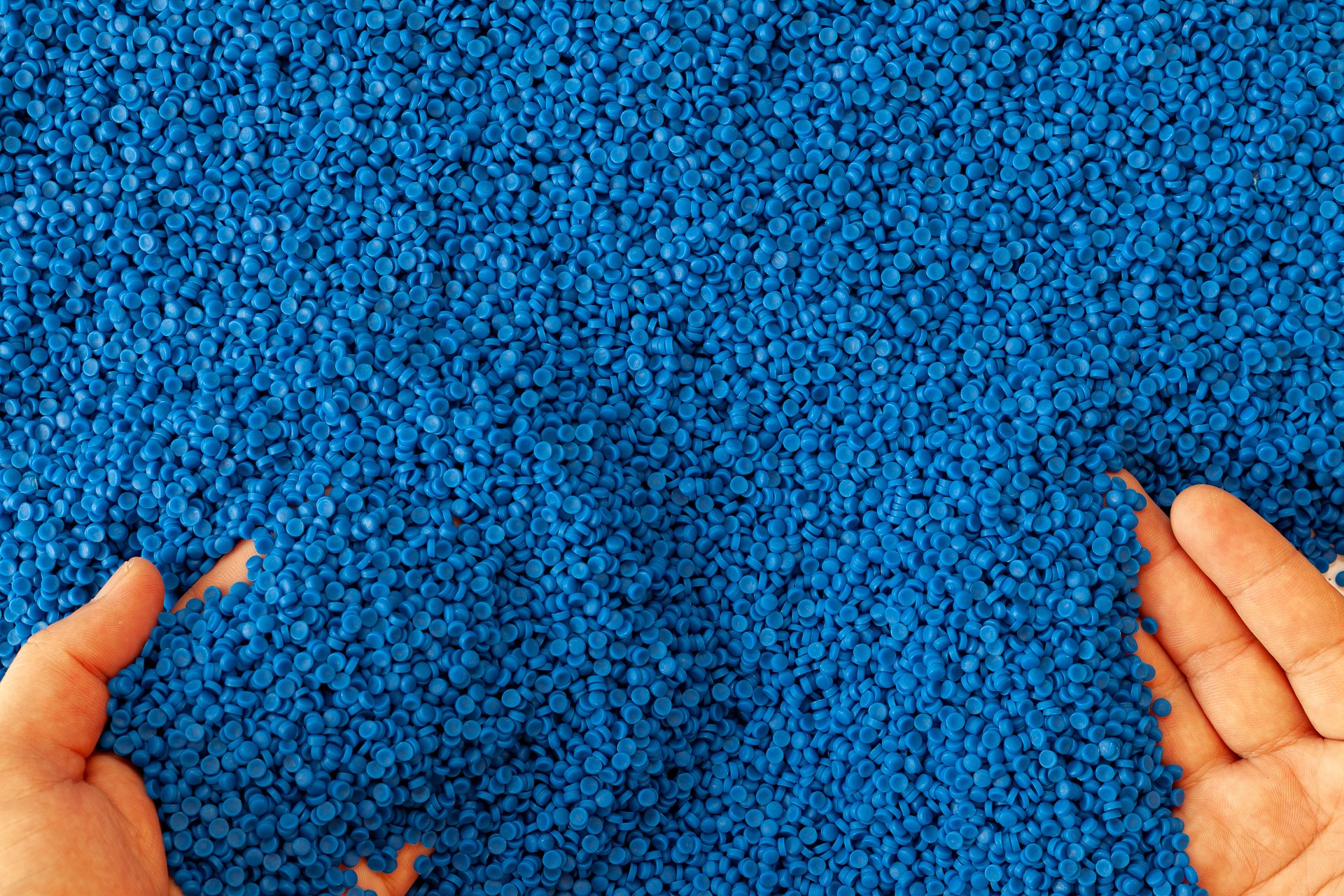A Novel Monomer Family for High-Performance, Degradable Thermosetting Polyester Resins
A family of crosslinkers for the synthesis of hard, tough, and degradable polyester resins.
Thermosets, or cross-linked polymers, are a class of materials with a permanent molecular architecture that imparts additional dimensional stability, enhanced tensile and impact strengths, improved elasticity, and reduced creep compared to their thermoplastic counterparts. These properties are essential for a wide range of applications such as gas and water pipelines, insulation, automotive parts, and fibre reinforced polymer composites.

Plastic pipes used in construction
The thermoset industry is growing dramatically, with cross-linked polymers now constituting 15-20% of all polymers produced. However, the same thermo-mechanical properties responsible for their robustness prevent them from being recycled or reprocessed. Ultimately, most products made with thermosets are incinerated or landfilled.
Project Overview
A team at the University of Manchester have developed a family of cross-linkers to synthesise thermosetting polyester resins based on PLA, PCL and PVL which are fully degradable.
Our family of cross-linkers are used for ring-opening polymerisation and, to synthesise polymers comprising units derived from that monomer. This family of cross- linkers imbues superior mechanical properties to degradable thermoplastic polymers such that they behave as thermosetting polymers.

Thermoplastics vs. Thermosetting Plastics
The cross-linker and monomer choice can tune the finished material’s performance, accessing hard and tough thermosets or, elastomeric systems. The performance of tough resins is particularly unique, matching the properties of classical epoxy or phenol-formaldehyde thermosets while also being able to be recycled or reprocessed.
The use of these compounds will provide new, affordable routes to fully degradable elastomeric and rigid polymeric materials from sustainable sources. Triggered degradation can facilitate selective chemical recycling to monomers, hydrolytic degradation, or full biodegradation as end-of life pathways.
Benefits and Impact
We believe this technology will enable a circular economy for thermosetting polymers.
- Thermal and mechanical properties comparable to those of commercially available non- degradable thermosets.
- The crosslinks and co-monomers can all be renewably-sourced and are inherently inexpensive.
- Fully degradable. It’s possible to recover monomer precursors and reinforcement agents (carbon fibre or other fillers) at end-of-life.
Target Markets and Applications
We are looking at applications in composite materials for this technology particularly for use in:
- • Energy applications – wind turbine blades
- • Automotive components
- • Aerospace components
- • Marine components

Spacecraft and the Earth. This image’s components were provided by NASA. Generative AI
Business opportunity
The materials have been developed at a lab (multi-gram) scale as proof of concept and a patent has been filed covering the use of the cross-linking monomer and the method of production.
Initial performance testing has been undertaken with highly positive indicative results. Scale-up and further testing are planned.
The Innovation Factory is seeking end users for feedback and commercial partners to work with to further develop and scale the technology with a view to licensing the IP.
Contact Natalie.Mera-Pirttijarvi@uominnovationfactory.com for more information.




